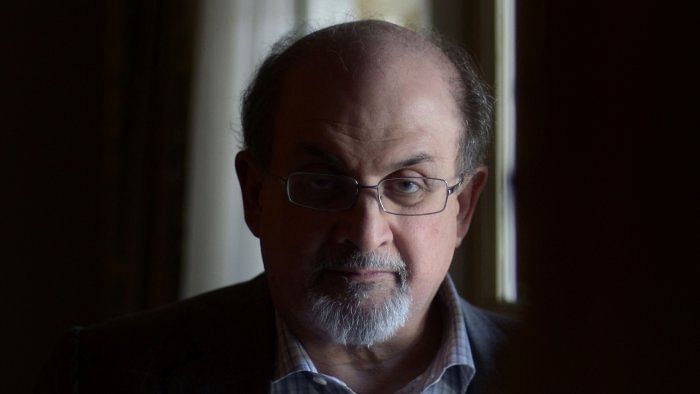
As an attack on Mumbai-born British-American novelist Salman Rushdie in Western New York state shocked the world, a retired police official and a journalist recalled a 1989 protest against him in Mumbai that had made international headlines.
At least 12 persons died during the police firing on the protesters near Crawford Market in south Mumbai on February 14, 1989.
A protest march had been organized in the busy area, near the Mumbai Police Commissioner's office, against Rushdie's controversial book The Satanic Verses. Urdu journalist Sarfaraz Arzoo was among those who covered it. The firing incident of that day was one of the worst in the history of Mumbai Police, he told PTI.
Arzoo, 65, who was then working with the newspaper Hindustan, claimed that the participants had not intended any violence and shops and other establishments in the area were open as usual.
The protest march started around 12 noon from Mastan Talav in Nagpada and headed towards Azad Maidan via J J Junction route, he said.
The protesters were stopped by police near Bombay Mercantile Bank on Mohammed Ali Road, he said, adding that this was not advisable.
Police allowed a delegation to present a memorandum of demands and asked people to disperse. Around 3 pm, while dispersing the mob, police opened fire in which 12 persons were killed and 40 injured, Arzoo said. But by some other contemporary media accounts, there was firing on police from the mob, which led to the cops opening fire.
Rushdie visited Mumbai quite a few times in later years, but no untoward incident took place, Arzoo noted.
D Sivanandhan, former Director General of Police of Maharashtra, recalled that thousands of people from the Muslim community had gathered at Crawford Market to protest against Rushdie's book. But nobody, neither protesters nor the police, had read the book, he said.
As the government of India had already banned the book, this protest march which created a law and order issue was avoidable, he said.
Sivanandhan was then Deputy Commissioner of Police at Special Branch-II of Mumbai Police. V K Saraf was then police commissioner, while S M Shangari as Additional Commissioner of Police (Admin) was looking after law and order, he said.
More than 33 years after Iran’s Supreme Leader Ayatollah Ruhollah Khomeini issued a fatwa ordering Muslims to kill him, Rushdie, 75, was stabbed onstage in front of a stunned and shocked audience at a tranquil literary institution in western New York State where he was about to speak at an event “for a discussion of the United States as asylum for writers and other artists in exile and as a home for freedom of creative expression”.
Authorities identified the suspect as 24-year old Hadi Matar of New Jersey but said they still did not know of the motive behind the attack. Meera Isaacs, another Mumbai resident, has different memories related to Rushdie.
She was the principal of Cathedral and John Connon School in the city where Rushdie studied in his early years. He visited the school a decade ago when on a holiday and was thrilled, Issacs said.
"He enjoyed the moment of being in the school again," she recalled.
The writer of "Midnight's Children" then walked around his alma mater and sat in one of the classrooms and remembered his school days, Issacs said.